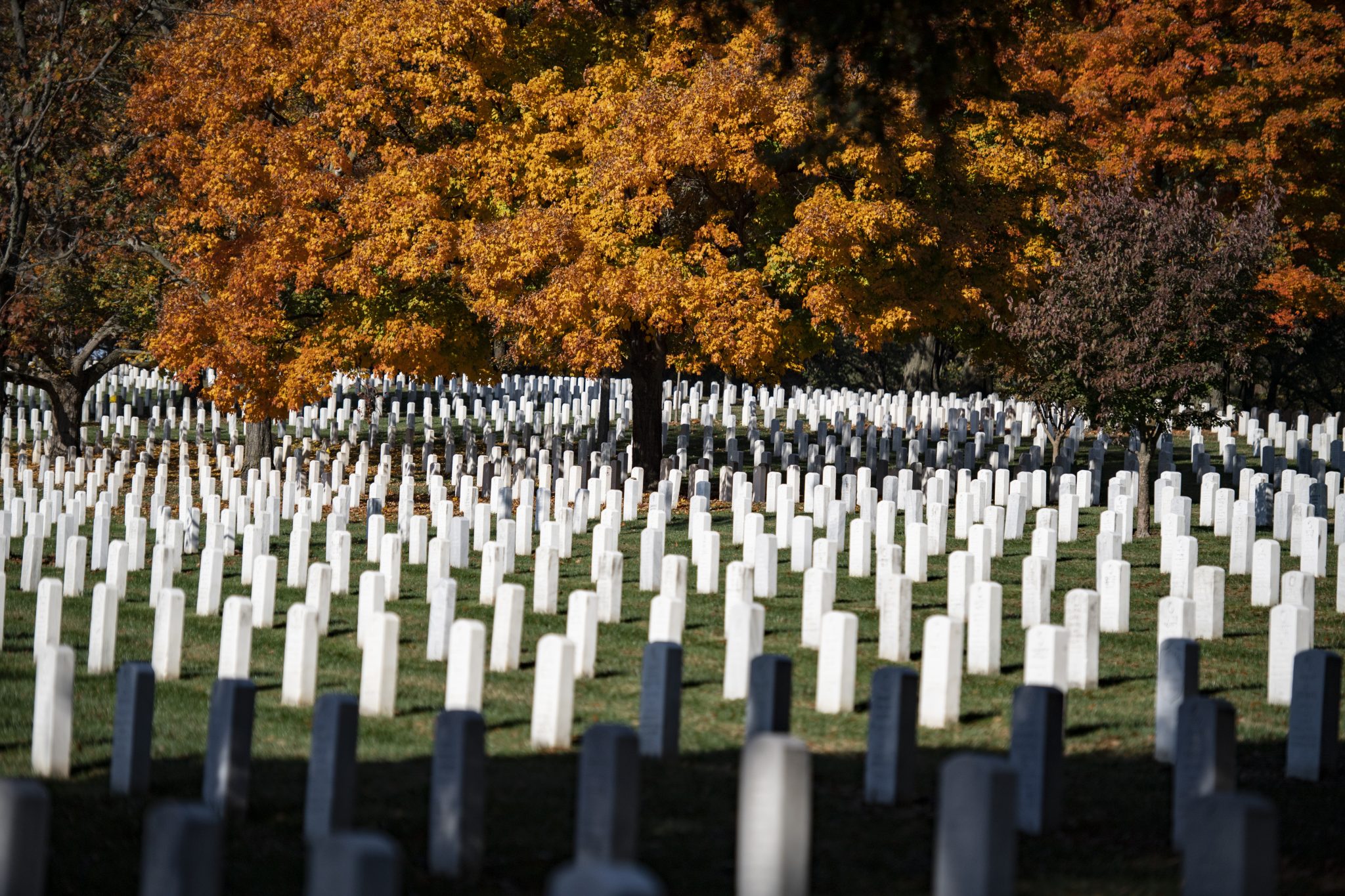Views expressed in opinion columns are the author’s own.
In an economy where 40 percent of people can’t afford a sudden $400 expense, why is the median cost for a funeral — an expense we’re all guaranteed to have eventually — in the richest country in the world completely unaffordable at more than $7,000?
Funerals span civilizations, predate our species and represent the fact that every person deserves dignity. In American history, marginalized groups such as enslaved people were often barred from holding funerals, demonstrating just how critical they are in the re-humanization of the dehumanized. In the face of societies that told people they were not enough, memorials proved they were. Such a powerful form of protest surpasses bounds set by the prejudices of the era and permanently contributes to our shared story.
The fact that people can now be priced out of their chance to immortalize that contribution is a travesty. We deserve a world better than one where leukemia patients try to go quietly to ensure the cost of their passing isn’t an additional burden on their family. It’s possible to create one where high school English teachers don’t need to have yard sales, bake sales and football jersey sales to scrounge anything they can while the deceased family member stays in a funeral home for weeks.
This is especially relevant in our current political climate where young people generally don’t have life insurance despite youth firearm deaths continuing to be commonplace. At its core, the provision of universal funeral care aligns with fundamental universal principles of human dignity and social justice. Given that death is inevitable, every individual, regardless of socioeconomic status, deserves to be treated with respect and dignity in their final rites. Yet reality starkly contrasts this long-practiced ideal, as many families are forced to forego proper funeral arrangements due to financial constraints. Such circumstances not only dishonor the deceased but also inflict additional suffering on grieving loved ones, compounding their emotional distress with financial burdens.
Establishing universal funeral care via legislation makes proper services accessible to all citizens, regardless of income or background. This program would provide basic funeral services such as embalming, cremation, transportation and other arrangements up to the median funeral cost of a given year. By standardizing these services, we could ensure affordability, transparency and — most importantly— dignity in the funeral process for all.
Furthermore, making such a program unconditional re-emphasizes the fact that each human deserves respect. Reducing barriers and bypassing means testing allows these programs to be legitimately useful as opposed to chock full of paperwork and overhead.
Currently, Maryland provides some funeral aid for those on various programs, but it’s simply not enough. Even for those who can scrape enough together to afford such an expense, alleviating the emotional and financial pressures of such payments would be beneficial to everyone involved.
The federal government has already been doing this for eligible victims of COVID-19 up to a staggering $9,000. Death in any other circumstance shouldn’t be considered any less deserving of assistance. Having that money available for rent, groceries, shopping or simply for peace of mind while organizing a funeral can foster economic stability and cohesion in uncertain times. Something as simple as a universal funeral care provision could have a cascading impact in improving American quality of life, particularly for those already saving up for funerals. The tangential effects of such a policy could further stimulate the economy in addition to assuaging fears of post-mortem arrangements.
The demand and funding are there, as evidenced by the aforementioned pandemic funeral program. If the government were to offer an unconditional $8,000 to the funeral of each American who died in 2022, it would come out to roughly $26 billion, which translates to about a quarter of the $95 billion foreign aid package recently approved by the Senate — or nearly three percent of what the military spent that year.
Such measures may raise concerns about rapid price increases, but the current prices are proof enough that a problem exists. Universal funeral care could instead serve as a peg against exploitation from greedy actors preying on vulnerable consumers, inflating costs and taking advantage of grief for financial gain. By establishing a government-regulated system of funeral care, we can impose ethical standards and oversight mechanisms to safeguard consumers and ensure the integrity of funeral services should the problem arise.
In a society that prides itself on values of equality and compassion, the denial of dignified funeral care to those unable to afford it is an ethical travesty. By establishing an unconditional and universal funeral care system, we affirm our commitment to upholding human dignity beyond the constraints of wealth and privilege. Death may be inevitable for us as individuals, but celebrating life through funerals is a testament to the immortal and persevering human spirit. Universal funeral care must be implemented for the sake of humanity, dignity and respect for all.
Rohin Mishra is a senior economics and government and politics major. He can be reached at rohinpmishra@gmail.com.



